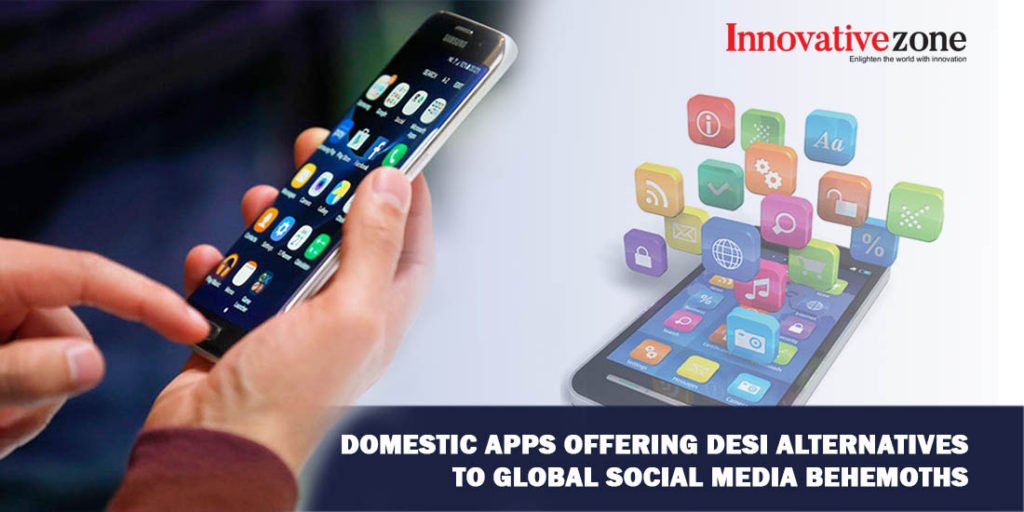Domestic Apps Offering Desi Alternatives to Global Social Media Behemoths
By – Ashwathy Nair
As per the data analytics firm Sensor Tower, a bundle of domestic apps are pitching themselves as home-based alternatives to global social media giants, which are flourishing, partly due to support from government agencies. Dubbed Twitter’s rival, Koo, which was established in March 2020 and has reached almost 5.4 million downloads in India.
An app known as Map My India, which is dubbed as an alternative to Google Maps, has nearly 1 million downloads. It has also been integrated with the Co-Win application.
The Co-Founder of Koo, Mayank Bidawatka stated that “there is no competition with Twitter, which operates on a scale that mainly serves the English-speaking audience. The goal is to serve the people of India who, due to linguistic barriers, do not have the opportunity to microblog in their own language. The users are given the option to choose their own language.”
Currently, the homegrown app supports English, along with Hindi, Kannada, Tamil, Telugu, and Marathi. It also includes a Beta version that supports Bengali.
The popularity of Koo has shot up nearly a month ago when several BJP politicians joined the platform, which included IT minister Ravi Shankar Prasad. On 10th February, Koo was also praised during a question hour in Rajya Sabha by Prasad. He said, “Koo is an app made in India, and today it has become a toast of success that we should be proud of… The exceptional bravery of these start-ups is being hailed.”
As per the Sensor Tower, Twitter that was founded in the year 2006, has over 90 million lifetime downloads in India, according to Prasad, last week, the active monthly users stand at 17.5 million in India.
The app, Map My India started its operation in the year 1995. But it started gaining popularity recently when the company tied up with ISRO to develop apps as well as geospatial software focusing on to encourage local mapping systems. The app is available in both PlayStore as well as Apple Store.
The chairman and managing director of MMI, Rakesh Verma stated that “A lot of big e-commerce and food delivery companies are using the maps in their backend in order to locate addresses accurately. The map is also being used in the navigation systems of some vehicles. But people were not aware of this app as the app did not deal with the final internet user. After the announcement made by ISRO, downloads for the app; went up nearly by 500 per cent.”
In recent times, “Sandes”, the NIC (National Informatics Centre) got launched in order to provide government officials with instant messaging services that are similar to WhatsApp. But it can be signed up by the regular customers as well as by using their phone number.
As per Sensor Tower, the app has a lifetime download of just 1.07 lakh. Last year, in November, a microblogging platform that is modelled after Twitter, received limelight when several internet users pointed out that there was a ‘verified’ account of PM Modi and Amit Shah on the platform. The app, which is available on Google Playstore, on the other hand, did not clarify what the process of verification was. After an initial download spurt, the growth of Tooter stagnated.
As per Verma, the biggest challenge that was faced in promoting MMI as an option is the monopoly that Google has in the market. “Since an operating system is being owned by the company, a lot of Android phones have been packaged with Google Maps. It is a misuse of dominance as users do not even get an opportunity to choose an option that suits them better.”
Previous efforts to popularise domestic alternatives have not generated desired results. After over 250 Chinese apps were banned by the Centre, including TikTok, which is a Byte-Dance-owned short video sharing app, several duplicates such as Dubsmash, Chingari, and Roposo flooded the Indian market. But a few months on, these apps did not manage to gain the popularity that TikTok once had.
Also Read:- Top 10 Luxury Watches for Men


